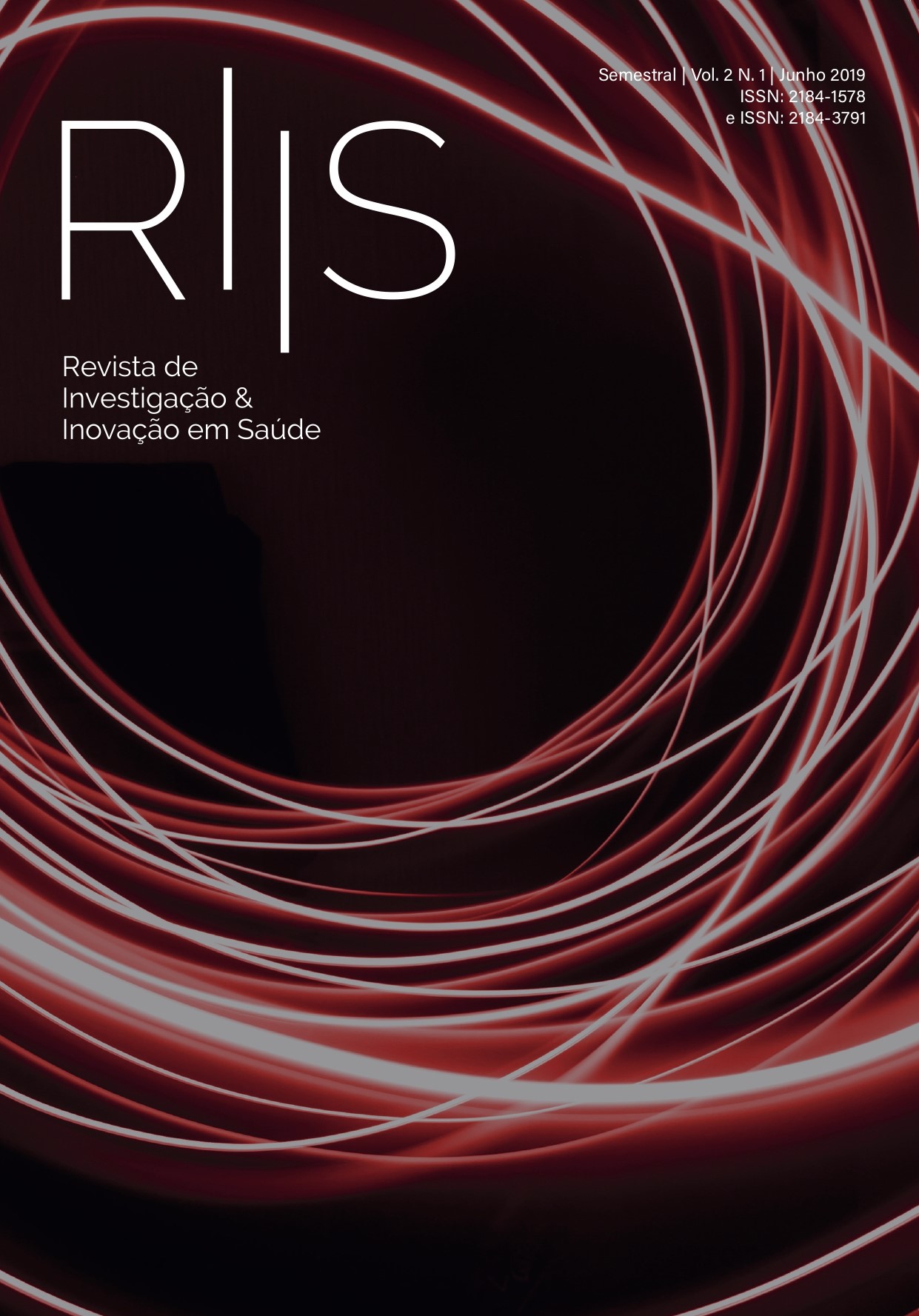Involvement of the father in the prenatal period: integrative review
DOI:
https://doi.org/10.37914/riis.v1i2.42Keywords:
fathers; pregnancy; role; paternityAbstract
Bachground: there are currently paradigmatic changes in relation to the focus of maternal health nursing, with the predominant role of the father being one of the main focuses of care. Objective: to identify the father’s importance and his role during pregnancy. Methodology: an integrative review was performed on the CINAHL®, Medline® and Psychology and Behavioral Science® databases. Of the 601 articles obtained only 10 were included in this review. Results: the included articles allude to pregnancy as a demanding period, being considered as a transition to paternity. From the analysis four subareas emerged: the father’s mental representation; how pregnancy becomes real to the father; the way parents have committed to fatherhood and the father’s role father in family life. Conclusion: the results highlight the father’s importance during pregnancy and the emerging need to focus care in the family in the face of a transition. Father’s involvement and inclusion during pregnancy plays a key role in building trust and leading to better management of stress caused by the transition to parenting of all family members.
References
Benokraitis, N. V. (2007). Marriages & families: changes, choices, and constraints. Princeton, NJ: Prentice Hall.
Bogren Jungmarker, E., Lindgren, H., & Hildingsson, I. (2010). Playing Second Fiddle Is Okay–Swedish Fathers' Experiences of Prenatal Care. Journal of Midwifery & Women's Health. 55(5), 421-429
Cherlin, A. (2004). The deinstitutionalization of American marriage. Journal of Marriage and Family. 72, 403-419.
Halle, C., Dowd, T., Fowler, C., Rissel, K., Hennessy, K., MacNevin, R. & Nelson, M. A. (2008). Supporting fathers in the transition to parenthood. Contemporary Nurse. 31:1, 57-70. doi:10.5172/conu.673.31.1.57.
Hildingsson, I., Haines, H., Johansson, M., Rubertsson, C. & Fenwick, J. (2014). Childbirth fear in Swedish fathers is associated with parental stress as well as poor physical and mental health. Midwifery. 30(2):248-54. doi: 10.1016/j.midw.2013.12.012 .
Johnsen, H., Stenback, P., Halldén, B., Crang Svalenius, E., & Persson, E. K. (2017). Nordic fathers’ willingness to participate during pregnancy. Journal of Reproductive & Infant Psychology. 35(3), 223-235.
Jordan, P. (1990). Laboring for relevance: expectant and new fatherhood. Nursing Research. 39(1), 11-16.
Kao, C., & Long, A. (2004). First-time Taiwanese expectant fathers' life experiences during the third trimester of pregnancy. Journal Of Nursing Research (Taiwan Nurses Association). 12(1), 60-71.
Kuljanić, K., Dorčić, T. M., Bistrović, I. L., & Brnčić-Fischer, A. (2016). Prospective Fathers: Psychosocial Adaptation and Involvement in the Last Trimester of Pregnancy. Psychiatria Danubina. 28(4), 386-394.
Lewis, S., Lee, A., & Simkhada, P. (2015). The role of husbands in maternal health and safe childbirth in rural Nepal: a qualitative study. BMC Pregnancy & Childbirth. 15(1), 162.
Linn, J.; Wilson, D. & Fako, T. (2015). Historical Role of the Father: Implications for Childbirth Education. International Journal of Childbirth Education, International Journal of Childbirth Education. 30 (1), 12-18.
Lowdermilk, D. & Perry, S. (2008). Enfermagem na maternidade. Loures: Lusodidata.
Marques, T. (2016). Aceitação e vivência da gravidez no casal. in Néné, M., Batista, M., & Marques, R. (Ed.). Enfermagem de saúde materna e obstétrica. (1ª ed.) Lisboa: Lidel.
Moher, D., Shamseer, L., Clarke, M., Ghersi, D., Liberati, A., Petticrew, M., … Group, P.-P. (2015). Preferred Reporting Items for Systematic Review and Meta-Analysis Protocols (PRISMA-P) 2015 statement. Systematic Reviews, 4, 9. doi:10.1186/2046-4053-4-1
Poh, H., Koh, S. & Seow, H. (2013). First-time fathers' experiences and needs during pregnancy and childbirth: A descriptive qualitative study. An International Journal Midwifery. 24 (3), 1–9. http://dx.doi.org/10.1016/j.midw.2013.10.002
Rosich-Medina, A., & Shetty, A. (2007). Paternal experiences of pregnancy and labour. British Journal of Midwifery. 15(2), 66-70.
Sansiriphun, N., Kantaruksa, K., Klunklin, A., Boasuang, C. & Jordan, P. (2010). Thai men becoming a first- time father. Nurs. Health Sci. 12, 403-409.
Schaurich, D. & Crossetti, M. (2010). Produção do Conhecimento sobre Teorias de Enfermagem: análise de periódicos da área. Escola Anna Nery Revista de Enfermagem. 14, (1), 182-88. http://dx.doi.org/10.1590/S1414-81452010000100027.
Silva, M. & Lopes, N. (2016). Comunicação Intrauterina. in Néné, M., Batista, M. & Marques, R. (Ed.). Enfermagem de saúde materna e obstétrica. (1ª ed.). Lisboa: Lidel.
Silverstein, L.; Auerbach, C. (1999). Deconstructing the essencial father. American Psychologist. 54, (6), 397-407.
Souza, M.; Silva, M. & Carvalho, R. (2010). Revisão integrative: o que é e como fazer. Einstein. 8,(1 pt 1):102-108.
Straughen, J. K., Caldwell, C. H., Young, A. J., & Misra, D. P. (2013).
Partner support in a cohort of African American families and its influence on pregnancy outcomes and prenatal health behaviors. BMC
Pregnancy And Childbirth, 13187.
Tamis-LeMonda, C. S., & McFadden, K. E. (2010). Fathers from low-income backgrounds: Myths and evidence. in M. E. Lamb (Ed.). The role of the father in child development (5th ed., 296-318). Hoboken, NJ: John Wiley & Sons.
Widarsson, M., Engström, G., Tydén, T., Lundberg, P., & Hammar, L. M. (2015). 'Paddling upstream': Fathers' involvement during pregnancy as described by expectant fathers and mothers. Journal Of Clinical Nursing.
24(7-8), 1059-1068.















